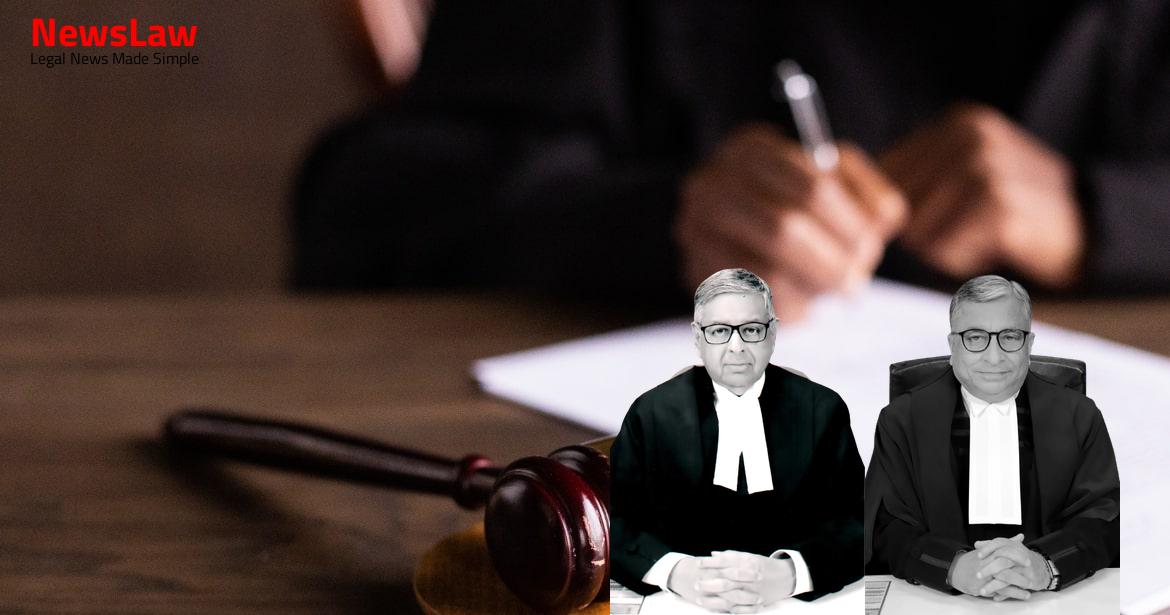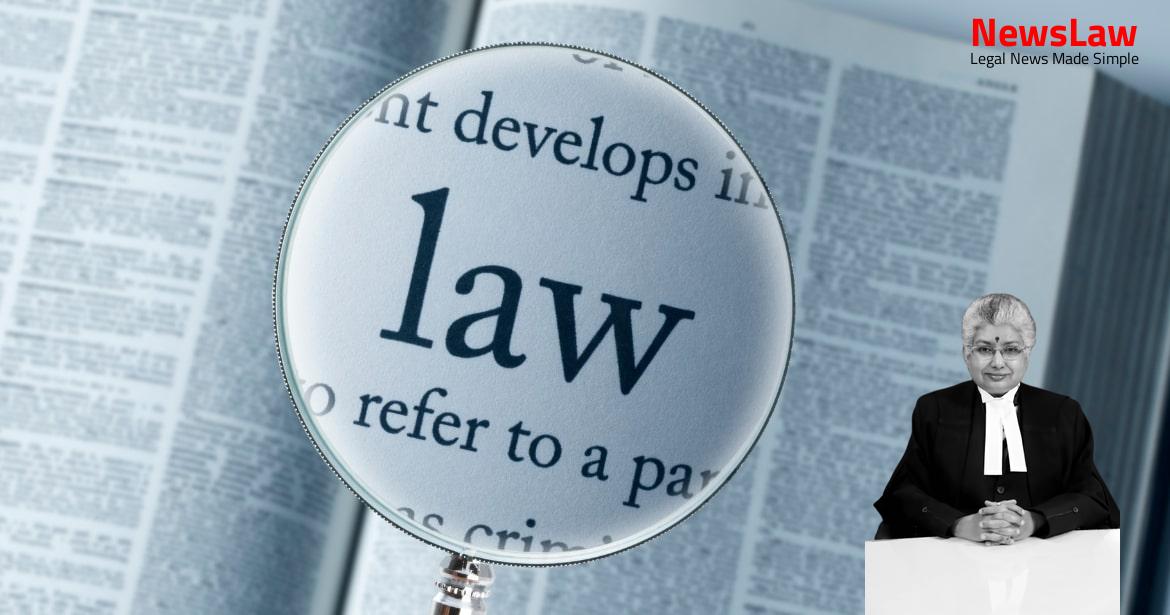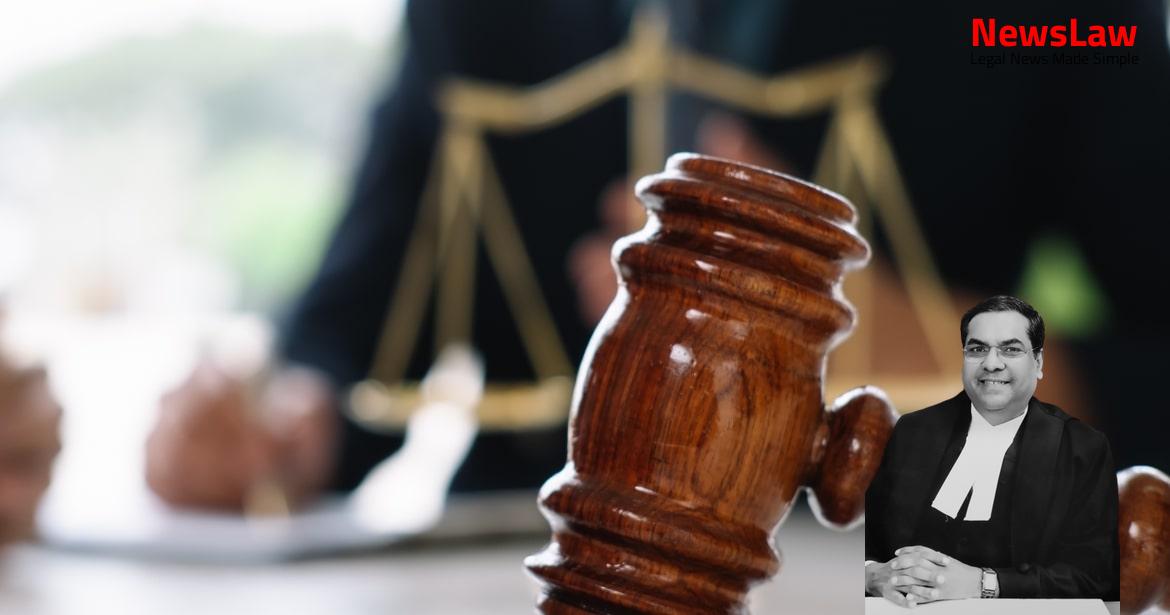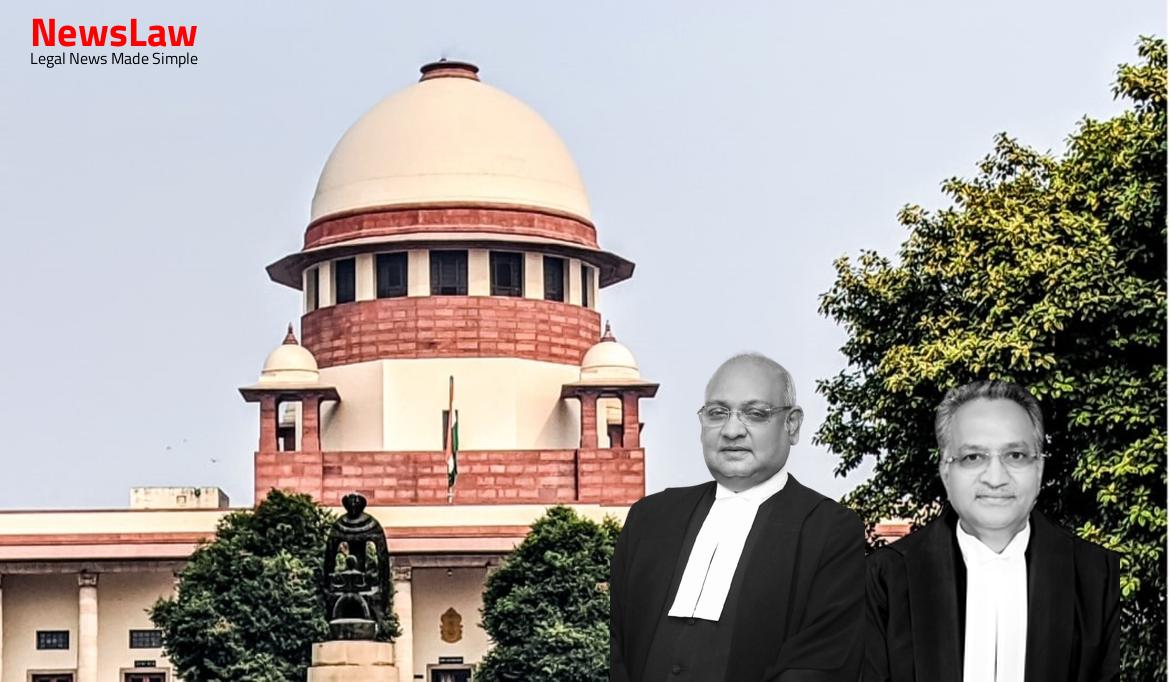Explore the detailed legal analysis and court’s evaluation of jurisdiction in the recent case summary. Discover the significance of legal grounds and criteria considered for transfer petitions. Gain insights into the complexities of court decisions and jurisdictional factors. Stay updated on the nuances of legal proceedings and transfer requests in the judicial system.
Facts
- The petitioner has filed an application for intervention in the case.
- The businesses of the petitioner and the respondent-company have had past association or connection.
- Counter claim was lodged by the respondents in a suit in the Delhi High Court.
- The petitioner, intervenor, and Gopal Sabu appear to be brothers and have a family dispute over the trademark SACHAMOTI.
- Proceedings in the suit were initially stayed due to a case in the Delhi High Court.
- Several transfer petitions have been filed by both the petitioner and the respondents.
- Gopal Sabu made complaints to the police against the petitioner for alleged counterfeiting of the brand.
- A criminal case is pending in the Salem Court and the petitioner wants it transferred to the Patiala House Court in New Delhi.
- Shiv Narayan Sabu, another individual, is implicated in the proceedings before the Salem Court.
- The respondents have also filed a suit in the High Court at Calcutta.
- The petitioner has filed an application under Section 406 of the Criminal Procedure Code seeking the transfer of the case.
- Various suits and complaints have been filed by both parties against each other regarding trademark infringement.
- The Judicial Magistrate has taken cognizance of alleged offenses and issued summons to the petitioner.
- Multiple litigations occurred between Raj Kumar and Gopal Sabu in 2016.
- The interim application for temporary injunction filed in CS (COMM) No 761 of 2016 is revived before the Single Judge of the Delhi High Court and may be heard on merits.
- FAO(OS) (COMM) No 69/2019, FAO(OS) (COMM) No 72/2019, and FAO (OS) (COMM) No 73/2019 filed before the Division Bench of the High Court against the order dated 22.01.2019 are disposed of.
- The orders of the Madras High Court dated 07.01.2019 in CMA No 846 of 2018 and CMP No 6995 of 2018, as well as the order dated 02.02.2018 passed by the Principal District Court, Salem, are set aside.
- The application for injunction filed in OS No 148 of 2016 by Sabu Trade Pvt. Ltd. (through Gopal Sabu) is revived and transferred along with the said suit to the Delhi High Court to be heard in the transferred suit along with the application revived in CS (COMM) No 761 of 2016.
- The learned Single Judge of the Delhi High Court is requested to decide both the aforementioned applications for injunction in the respective suits within three months.
Also Read: Contractual Interpretation in Real Estate Dispute
Arguments
- Respondent’s counsel highlighted the delay in seeking transfer of the criminal case, which was registered on April 5, 2018, and has made significant progress.
- The transfer petition was filed on January 12, 2021, raising questions about the timing of the request.
- The argument presented by the respondent’s counsel is that there is insufficient material to warrant a transfer on this basis.
- The intervenor has claimed that they have been needlessly involved in the dispute.
- Petitioner asserts lack of impartial enquiry/investigation/trial at Salem due to respondents’ influence.
- Madras High Court dispensed with personal appearance of the petitioner during trial.
- Petitioner argues criminal elements in the case pending in Salem should not be mixed with civil suit.
- Cites judgments of Umesh Kumar Sharma vs State of Uttarakhand and Gurcharan Dass Chadha vs. State of Rajasthan on presenting credible materials for lack of neutrality in trial as a ground for transfer.
- Points out similarity in points involved in the criminal case at Salem and the suits in Delhi High Court.
- Submission that the proceedings in Salem Court being conducted in Tamil, which petitioner does not understand.
- Convenience for conducting proceedings in New Delhi due to civil suits being heard in Delhi High Court.
- Complains about distance of over 2000 kilometers between Salem and petitioner’s residence in Indore with no direct connectivity.
- Reliance on cases Sri Jayendra Saraswathy Swamigal (II), T.N. vs. State of Tamil Nadu & Ors. and Mrudul M. Damle & Anr. vs Central Bureau of Investigation, New Delhi.
Also Read: Non-compliance with requirements of Section 81(3) of the Representation of the People Act, 1951
Analysis
- The petitioner’s case for transfer does not meet the standard laid down in previous cases.
- The petitioner’s plea for transfer is primarily based on convenience.
- The petitioner’s language issue can be overcome with the aid of a translator available in the Salem Court.
- No complaints were previously made about the jurisdiction of the Salem Court.
- The petitioner’s claim of not understanding Tamil is not a sufficient reason for transfer to a different court.
- The case being heard in the Salem Court does not appear to compromise justice for the petitioner.
- Grievances of the intervenor cannot be considered in this specific transfer petition.
- Convenience of one party is not a valid ground for allowing a transfer.
- Transfer of a criminal case entails factors beyond mere convenience.
- No substantial evidence has been provided to prove that the respondents’ influence in Salem could impair a neutral trial.
- The proposition of continuing the civil suits and criminal case together does not fall within the scope of this transfer petition.
- Jurisdiction of a court for criminal prosecution is based on the provisions of the Code of Criminal Procedure.
- Language was a factor considered by the Court in selecting the forum for transfer of the case.
- Witnesses may also have to travel long distances to depose before the jurisdictional court.
- The plea of inconvenience for transferring cases based on travel time to the court conducting the trial should be sparingly accepted.
- Often the complainant or the accused have to travel across an entire state for criminal proceedings before a jurisdictional court.
- The language factor was considered in determining the forum for transferring the case.
- Jurisdiction under Section 406 of the 1973 Code should be sparingly used, as per the Nahar Singh Yadav case.
- Such jurisdiction should not be exercised based on mere party apprehension of injustice, as per the Gurcharan Dass Chadha case.
- If a court has jurisdiction to hear a case, it should proceed in that court unless very specific grounds under Section 406 are met.
Also Read: Setting Minimum Qualifying Marks for Viva Voce: A Question of Legality
Decision
- Connected applications shall be disposed of
- No order as to costs
- Provisions in the Criminal Procedure Code specifying courts with jurisdiction would be meaningless if transferred
- Convenience or inconvenience is irrelevant compared to the legal mandate
- The transfer petition is rejected
Case Title: RAJKUMAR SABU Vs. M/S SABU TRADE PRIVATE LIMITED (2021 INSC 293)
Case Number: T.P.(Crl.) No.-000017 / 2021



